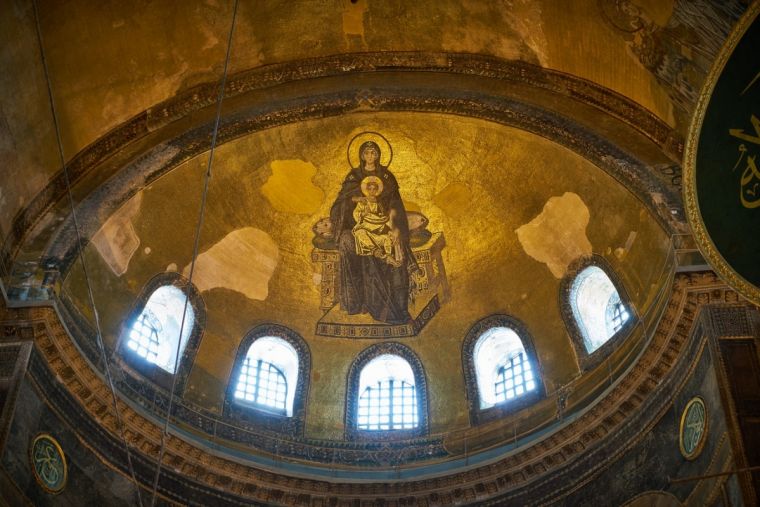Muslim leaders express concern over plans to make Hagia Sophia a mosque

Muslim leaders have expressed their support for calls to keep the Hagia Sophia in Turkey open to people of all faiths.
The UNESCO World Heritage Site dates back to the sixth century and was originally a cathedral before becoming a mosque after the Ottoman conquest in 1453. It has been a museum since 1934 but is to be turned into a mosque.
Judge Mohamed Abdel Salam, general secretary of the Higher Committee of Human Fraternity (HCHF) in New York, said that any decisions around the Hagia Sophia should avoid causing divisions, and that the landmark should be a place that promotes "mutual respect and understanding among all religions".
In a letter to Dr Ioan Sauca, interim general secretary of the World Council of Churches, Judge Abdel Salam said: "HCHF calls on everyone to avoid any step that could undermine interfaith dialogue and cross-cultural communication, and that could create tensions and hatred among the followers of different religions, confirming the humanity's need to prioritize the values of coexistence.
"HCHF considers that the places of worship have a very special meaning for believers, stressing that it must stay the same – as message of peace and love for everyone, and it shouldn't be used in a way that could contribute to segregation and discrimination, at a time when the world is in real need to respond to religious appealing to achieve human solidarity, and to strengthen the values of coexistence and brotherhood between all humankind."
Dr Sauca wrote to the Turkish President Recep Erdogan earlier this month urging him to reconsider the decision to turn the Hagia Sophia into a mosque.
"By deciding to convert the Hagia Sophia back to a mosque you have reversed that positive sign of Turkey's openness and changed it to a sign of exclusion and division," Dr Sauca said.
He continued: "The decision to convert such an emblematic place as Hagia Sophia from a museum back to a mosque will inevitably create uncertainties, suspicions and mistrust, undermining all our efforts to bring people of different faiths together at the table of dialogue and cooperation."
Hafid Ouardiri, director of the Muslim Foundation de l'Entre-Connaissance in Geneva, also wrote to the WCC to express his "full support" for Dr Sauca's call.
"As a Muslim, like many others around the world, we pray that Hagia Sofia, in Turkey we love with all our heart, remains what she has always been since 1934, namely a crossroads of knowledge, of light, wisdom and peace for all humanity," he said.











